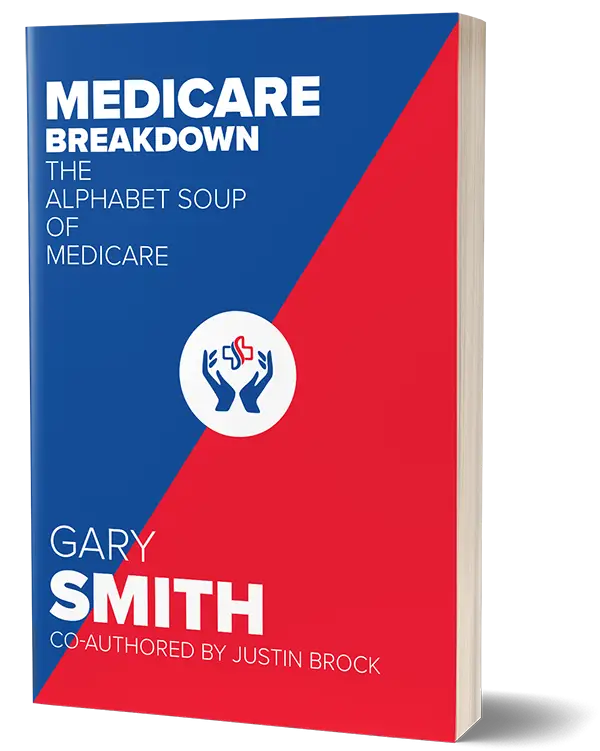What is Medicare?
Get A Free Quote
We put the CARE in Medicare!
Medicare is a lifeline for many Americans, particularly as they age. But what exactly is it? It's not just a government program; it's a comprehensive health insurance system designed to support seniors and those with disabilities. If you’re nearing retirement or helping a loved one navigate their healthcare options, understanding Medicare is crucial. In this article, we’ll explore its history, structure, benefits, and the challenges it faces, ensuring you’re well-informed and ready to make the best decisions for your health.
A Brief History of Medicare: Where It All Started
Let’s take a quick trip back to 1965. The country was buzzing with change, and the landscape of healthcare was no different. That was the year Medicare was established under President Lyndon B. Johnson, aiming to provide health coverage for the elderly. Can you imagine how vital this program was for the millions of seniors struggling to afford medical care at the time?
Since its inception, Medicare has evolved dramatically. Initially offering just hospital and medical insurance, it now consists of multiple parts designed to meet various needs. The introduction of Medicare Part D in 2003, which covers prescription drugs, was a big step forward. This evolution highlights how Medicare has adapted to the changing healthcare landscape, responding to the needs of its beneficiaries as society itself shifts.
Structure of Medicare
Breaking It Down
Now, let’s unpack Medicare a bit more. Imagine Medicare as a well-organized toolbox, each section intended for different kinds of health-related tasks. It has four main parts:
- Medicare Part A: This is your hospital insurance. It covers inpatient hospital stays, skilled nursing facilities, hospice care, and some home health services. Think of it as your safety net for serious medical situations.
- Medicare Part B: This part is all about medical insurance. It focuses on outpatient care, preventive services, and medically necessary equipment. It’s like having a regular health checkup; it helps keep you healthy and catch potential issues before they become serious.
- Medicare Part C (Medicare Advantage Plans): These plans are a bit like a buffet. They offer all the benefits of Parts A and B and often include additional features like vision and dental coverage, bundled into one plan managed by private insurance companies. This helps simplify things for those who prefer a more streamlined approach.
- Medicare Part D: Finally, we have prescription drug coverage. With rising medication costs, Part D can be a lifesaver by helping cover the cost of prescriptions. Think of it as your discount plan for vitally needed medications.
Eligibility: Am I In?
Who qualifies for Medicare? Typically, if you're 65 or older, you’re eligible. However, younger individuals with certain disabilities or conditions, like permanent kidney failure, may also qualify. Enrollment occurs during designated periods, so it’s crucial to mark your calendar and stay informed—missing these windows can lead to delays or penalties.
The Benefits of Medicare
Why It Matters
Medicare is about more than just basic health coverage; it’s a crucial safety net that allows seniors to access the medical care they need without the crushing burden of debt. Here’s how:
Comprehensive Coverage
With a mix of hospital and outpatient services, Medicare provides a wide range of medical support. This means you can receive necessary treatments without worrying about the overwhelming costs. Whether you're dealing with a chronic condition or just need a routine checkup, having Medicare backing you up can ease anxiety.
Financial Protection
It’s no secret that medical costs can spiral out of control. Medicare significantly reduces financial risks by covering many critical expenses. Sure, there are premiums and deductibles, but overall, it shields beneficiaries from astronomical healthcare bills—helping keep those bank accounts from drying up. For many, it means the difference between a stable life and financial distress.


Challenges and Limitations of Medicare
The Other Side
No system is perfect, and Medicare is no exception. While it provides essential services, some glaring challenges exist.
Coverage Gaps
One major limitation is the services Medicare doesn’t cover, such as dental, vision, and long-term care. Many seniors find themselves needing these services but discover they’re not included in their plans. This can lead to unexpected out-of-pocket expenses that strain budgets—especially for those on fixed incomes.
Rising Costs
Rising premiums and out-of-pocket costs can prove burdensome for beneficiaries. With healthcare inflation becoming a hot topic, many wonder about Medicare’s sustainability. How can this program continue to support future generations when financial pressures are mounting?
Here’s the kicker—most beneficiaries still seek supplemental insurance (often called Medigap) to plug these gaps. This adds another layer of complexity and expense, making healthcare planning that much more challenging.
Medicare vs. Other Health Insurance Options:
What You Should Know
So, how does Medicare stack up against other health insurance options? Let’s compare it to Medicaid, the government assistance program for low-income individuals. Unlike Medicare, Medicaid focuses on financial need rather than age or disability, often providing more comprehensive support for those who qualify. For some, the combination of both programs can lead to a robust safety net, but navigating this can be tricky.
Moreover, some folks might wonder if they should consider private insurance. Medicare Advantage plans provide an alternative route, often combining benefits into one handy package. But the question arises—does one size fit all? Not necessarily. It’s essential to weigh the options based on personal health needs, financial situations, and personal preferences.
The Importance of Understanding Your Choices
With all this variation, you might ask, “How do I know what’s right for me?” That’s an important question. Each person’s situation is unique, and there’s no one-size-fits-all answer. That’s why taking the time to research and think critically about your healthcare needs is crucial.
Resources and Support for Medicare Beneficiaries:
Help Is Available
Navigating Medicare can feel like wandering through a labyrinth. Fortunately, there are plenty of resources available to guide you.
Official Resources
The Medicare website (Medicare.gov) is the go-to source for up-to-date information on coverage plans, eligibility, and application processes. They have tools that can help you compare plans tailored to your specific needs. If online isn’t your thing, State Health Insurance Assistance Programs (SHIP) offer personalized support and counseling.
Educational Initiatives
In addition to official channels, community workshops can provide invaluable insights and clarity. Many local organizations hold seminars or one-on-one sessions—these can be fantastic opportunities to ask questions and learn from others facing similar challenges.

The Future of Medicare:
What Lies Ahead?
As we look forward, what changes are on the horizon for Medicare? The legislative landscape is always shifting, with debates about its funding and structure. The concerns surrounding Medicare's sustainability continue to echo through congress, leading to potential reforms that could reshape how it operates.
Innovations in Healthcare Delivery
Innovations like telemedicine are shaking things up too. With increasing reliance on technology, being able to consult with a doctor from home is becoming more common. Imagine receiving care without having to navigate traffic or wait in crowded offices—that’s what many seniors are looking forward to in Medicare's future.
Medicare is more than just a health insurance program; it’s an essential resource that plays a crucial role in America’s healthcare landscape. Whether you’re approaching retirement or assisting a loved one, understanding how it works can empower you to make informed decisions about health and wellness.
In a world where healthcare can often feel daunting, Medicare offers support, structure, and security. So take a moment to explore your options—and don’t hesitate to seek out the resources available to you. Your health and wellbeing depend on it!



